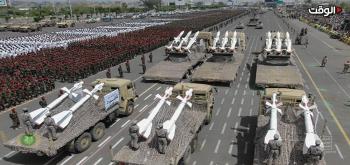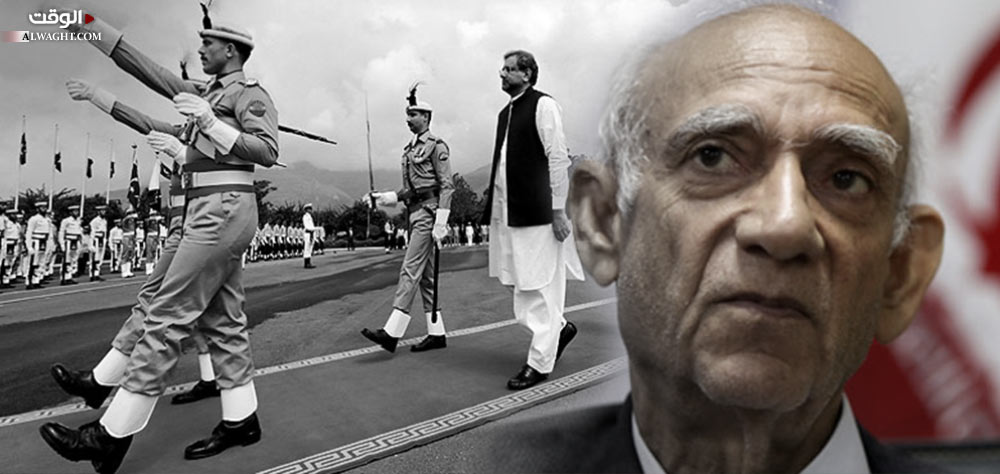Alwaght- The US-Pakistan polarity has set for more broadening in past few days, after it was caused by the US president’s announcement of the new policy for his country’s war in Afghanistan on August 21. The gap developed to an extent that General Qamar Javed Bajwa, the Pakistani chief of general staff, in his meeting with the American ambassador to Islamabad David Hale said that his country did not look for any “material or financial assistance from the US.” The assertive remarks by the Pakistan military chief came on August 23, two days after the American leader in his speech blamed Pakistan for supporting terrorism in the embattled Afghanistan and threatened to cut off the Washington’s aids to Islamabad.
Where do Islamabad-Washington tensions go?
The Afghanistan affairs analyst Pir Mohammad Molazehi in an interview to Alwaght explained roots of Islamabad-Washington differences, saying the US at George W. Bush term in office adopted a coherent policy in South Asia. As part of the new policy, Bush administration reached a deal with India according to which Washington pledged to deliver 13 high-tech nuclear reactors to New Delhi. At that time, the speculations about the deal came out, with some of them suggesting that the US signed the reactor delivery agreement in return for India to withdraw from the Peace Pipeline, a gas transit project that was planned to send the Iranian gas to India passing the Pakistani territories. Despite the primary Indian procrastination, New Delhi leaders assured that they will make operational the Iranian gas project in a proper time later. The American strategy at that time was governed by the Indian role in the region, something cost Pakistan highly. In fact, until the end of the Cold War, Islamabad was an ally to the Americans in South Asia, with India mainly tending to alliance with the Soviet Union. The US strategy shift, the outcome of which was replacing of India with Pakistan, largely filled the Pakistani leaders with dread.
The new Trump’s policy, labelled as "radical shift", too, sees role for India in Afghanistan. The policy demands military participation of New Delhi in Afghanistan, sending the Pakistanis into rejuvenated feeling of being snubbed by the Americans. Additionally, Islamabad officials are worried that the Indian presence in Afghanistan will put them in encirclement, something pushed the Pakistani leaders to struggle for exit from the current situation.
Commenting on the Pakistani officials' regional visits, Molazehi told Alwaght that the trips by the army chief as well as other foreign policy officials to China, Russia, and Iran are aimed at finding new alternatives for the US. However, he added, the Pakistani political leaders are in assessment stage, and are yet to make up their mind if they want to replace other actors like China and Russia with the US, having in mind that the Pakistani military leaders still hold close relations with Washington. Still nearly all of the Pakistani decision makers are worried about the new place seen for India in Afghanistan within the new American strategy. They even prefigure their relationship to plummet to the lowest levels, with the American aids could be cut.
Molazehi also commented on the historical roots of the Western discords, especially the US, with Pakistan, saying that there is a prevalent notion in the US that blames derivation of terrorist organizations such as al-Qaeda and ISIS on the religious schools in Pakistan. The fact about the religious schools is that when the fighting against the Soviets' Red Army was going on in Afghanistan in the 1980s, Saudi Arabia founded a big number of religious schools across Pakistan. They highlighted jihad (holy fight) as the only way the Soviet forces could be defeated, spurring thousands of students from across the region to attend the classes for being trained for jihad against the Red Army occupying the Afghan territories. At that time, the US held close relations with the jihadi groups. Besides, Pakistan was a friend of them, with al-Qaeda being supplied with weapons and training by Islamabad. However, when the defeated Soviet withdrew Afghanistan, the Americans left Afghanistan unattended. Short after, civil war broke out, leading to empowerment of Taliban and al-Qaeda, two radical groups that allegedly launched 11 September terror attacks against the US mainland. Since then former allies in battle for the Soviet exit from Afghanistan were labelled terrorist organizations by the US, with Saudi Arabia and Pakistan being identified as the cradles of their religious radicalism.
Having his say on the current status of the Pakistani-American ties, the South Asia analyst maintained that at the present time one of the major sticking points disturbing the relations between Washington and Islamabad is the fundamentalist groups, including the Jaish Muhammad and Lashkar-e-Taiba that are active both in Indian-controlled Kashmir and in Afghanistan. Reports, additionally, suggest that there are some 25 splits of Taliban and the Haqqani Network active in these regions.
All of these groups were active in Northern Waziristan of Pakistan in the past, and the Americans argue that the Pakistani army backs these extremist factions even now. These accusations have played a big role in deterioration of the two countries’ relations. Pakistanis argue they have been victim to terrorism themselves and so far mounted many military operations against the extremists in Northern Waziristan in tribal part of the country. However, Washington underrates the Islamabad's counterterror efforts as simulations.
Molazehi also touched on the outlook of the two countries' relationship, underscoring the heavy dependence of pakestani government and army on the US. He, however, accentuated the Pakistani people’s aversion to Washington, saying that there is a gap between the people and government’s view towards the US.
Still, being pressed by the Americans, the Pakistani leaders are seeking ways for alternative allies at the prospect of deteriorated relations with Washington. The countries of choice in the Pakistani officials' viewpoint are Russia, China, and Iran. Pakistan-China relations have a long and old history, and even Islamabad nuclear program is, to a large extent, pursued in association with Beijing. Anyway, Pakistani political and military leaders psychologically tend to the West and it does not look realistic to think that the Pakistani officials will very soon decide on if they want to allow Russia, China, and Iran replace the US as new partners.



























